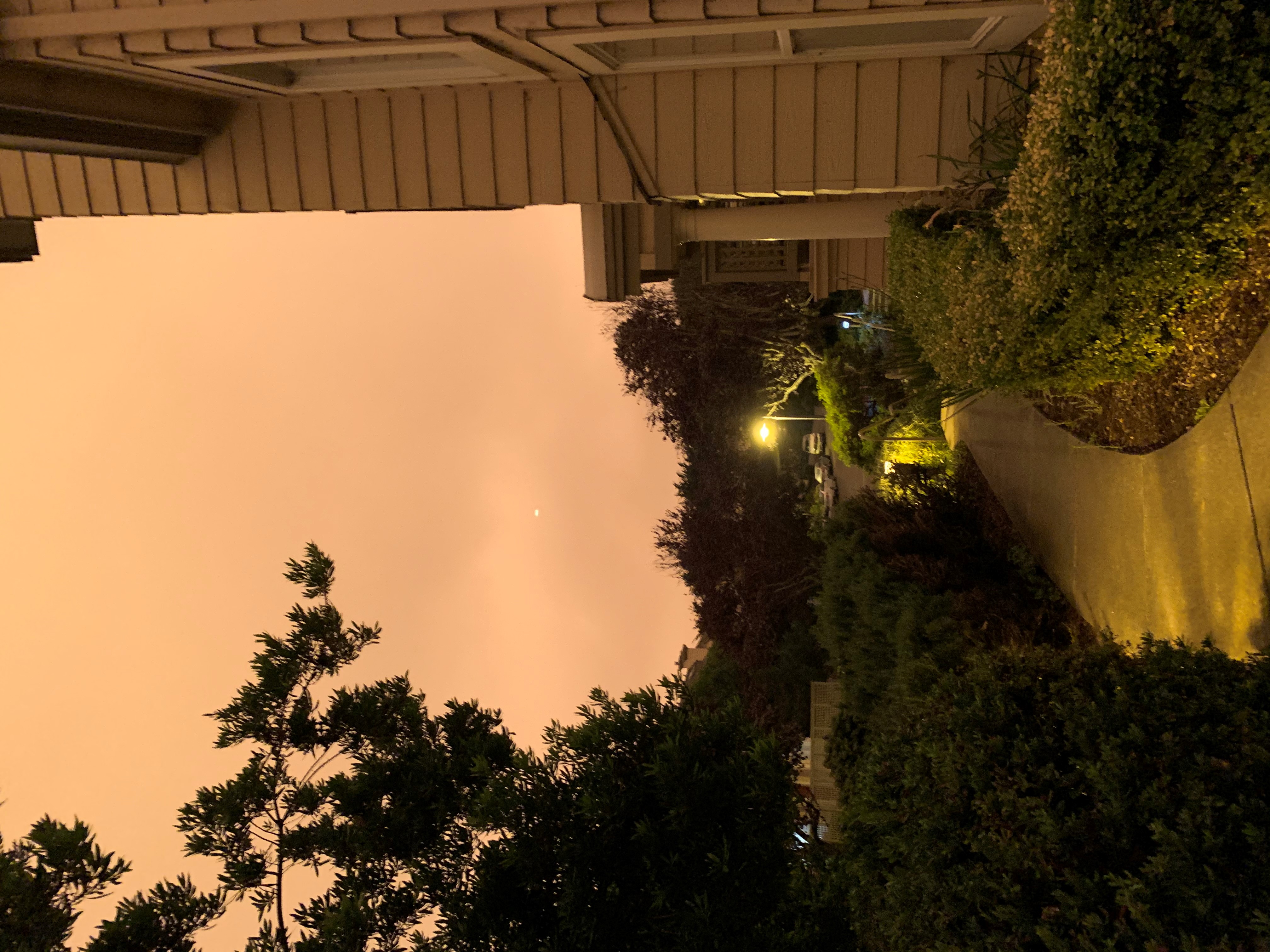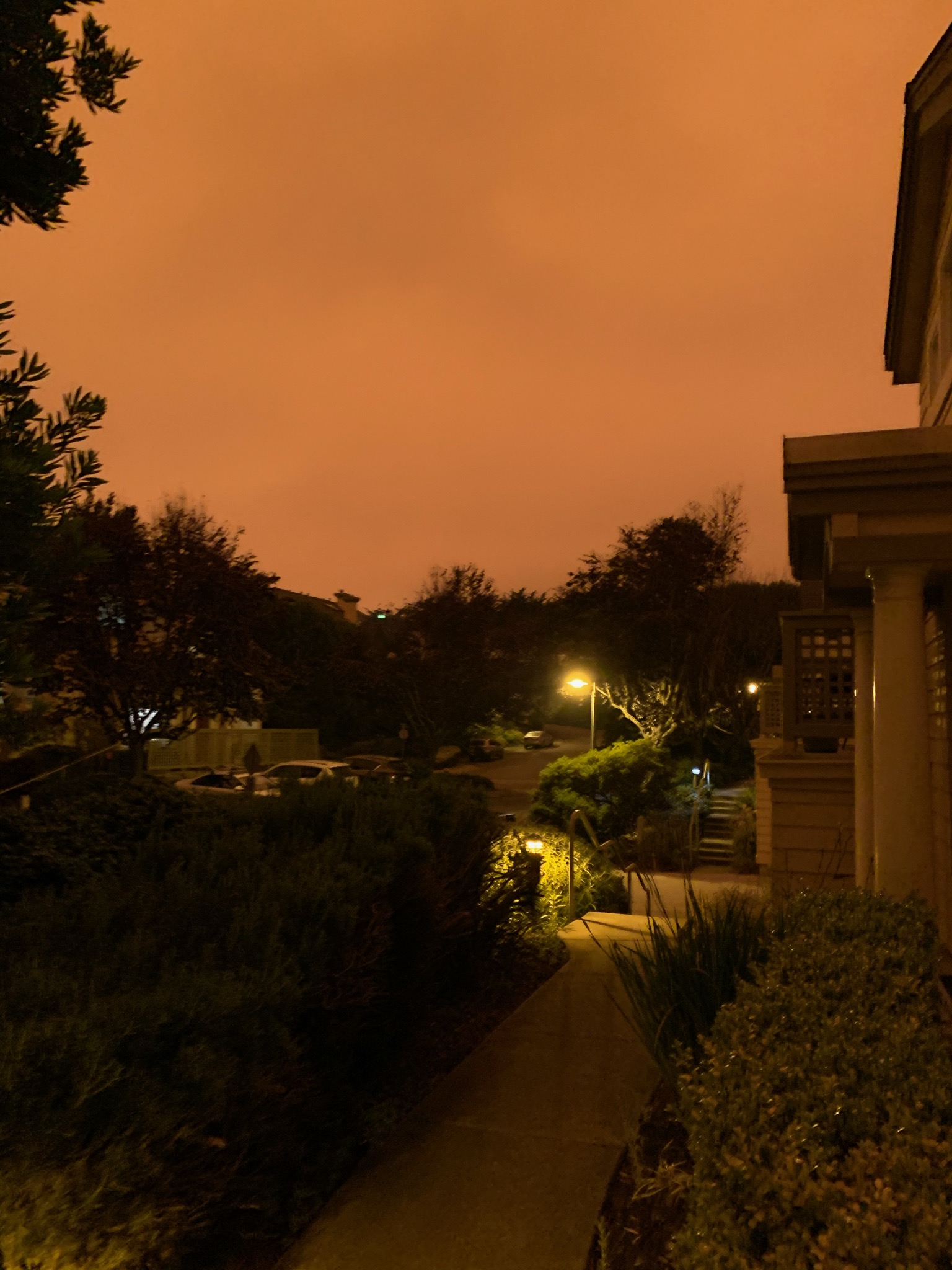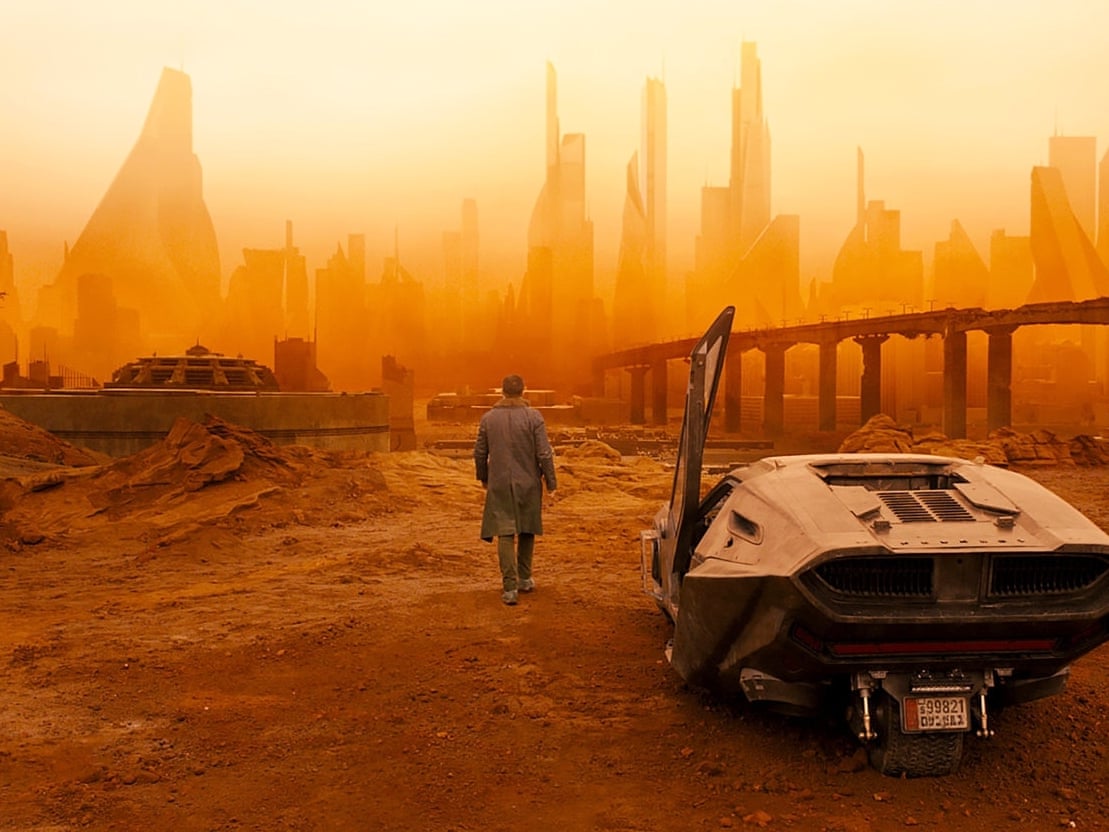This is the view from Half Moon Bay, Calif., not far from the CZU Lightning Complex Fire, at 9am this morning:

Update: The same reader sent this photo from noon PDT:

Fires continue to burn all over the state despite some modest cooling from this weekend's record temperatures. The California Air Resources Board notes that the increased frequency and severity of these fires, like the increased frequency and severity of other weather-related incidents, comes directly from climate change.
The image seems eerily familiar to us sci-fi fans:

Meanwhile, the Rocky Mountains have a completely different set of weather problems today:
Across parts of the northern and the central Rockies, including Denver, some 6 million people were under winter alerts Tuesday. Across this region, 100 to 200 mm of snow could fall, with locally higher amounts of 300 to 450 mm at the highest elevations through Wednesday. As the day broke, snow was already falling across parts of Idaho, Utah and Wyoming and moving into northern Colorado. By midmorning Tuesday, the snow was expected to spread across Colorado and last through Wednesday morning.
Winter hadn't just arrived through precipitation: Temperatures 17–22°C below average were forecast to lead to numerous records Tuesday and Wednesday.
Lows were forecast to dip below -10°C with wind chills [well below that], with highs that will struggle to get [above freezing] for several locations from the Rockies to parts of the Plains.
On Saturday, [Denver] hit 39°C. Not only was that a daily record high, But it also set an all-time hottest temperature record for the month of September in the city, and it was the furthest into September the city had ever hit 38°C. The previous record was 36.5°C, set last September.
On Monday, Denver hit a high of 34°C, making it the 73rd day in 2020 to exceed 32°C. That tied the all-time record of 73 days set in 2012.
Just 12 hours later, Denver was nearly 34°C colder Tuesday morning, with light snow beginning to fall around the area.
So, in three days, Denver went from a record-shattering 39°C to one of its earliest snowfalls on record.
This year just continues to get weirder.